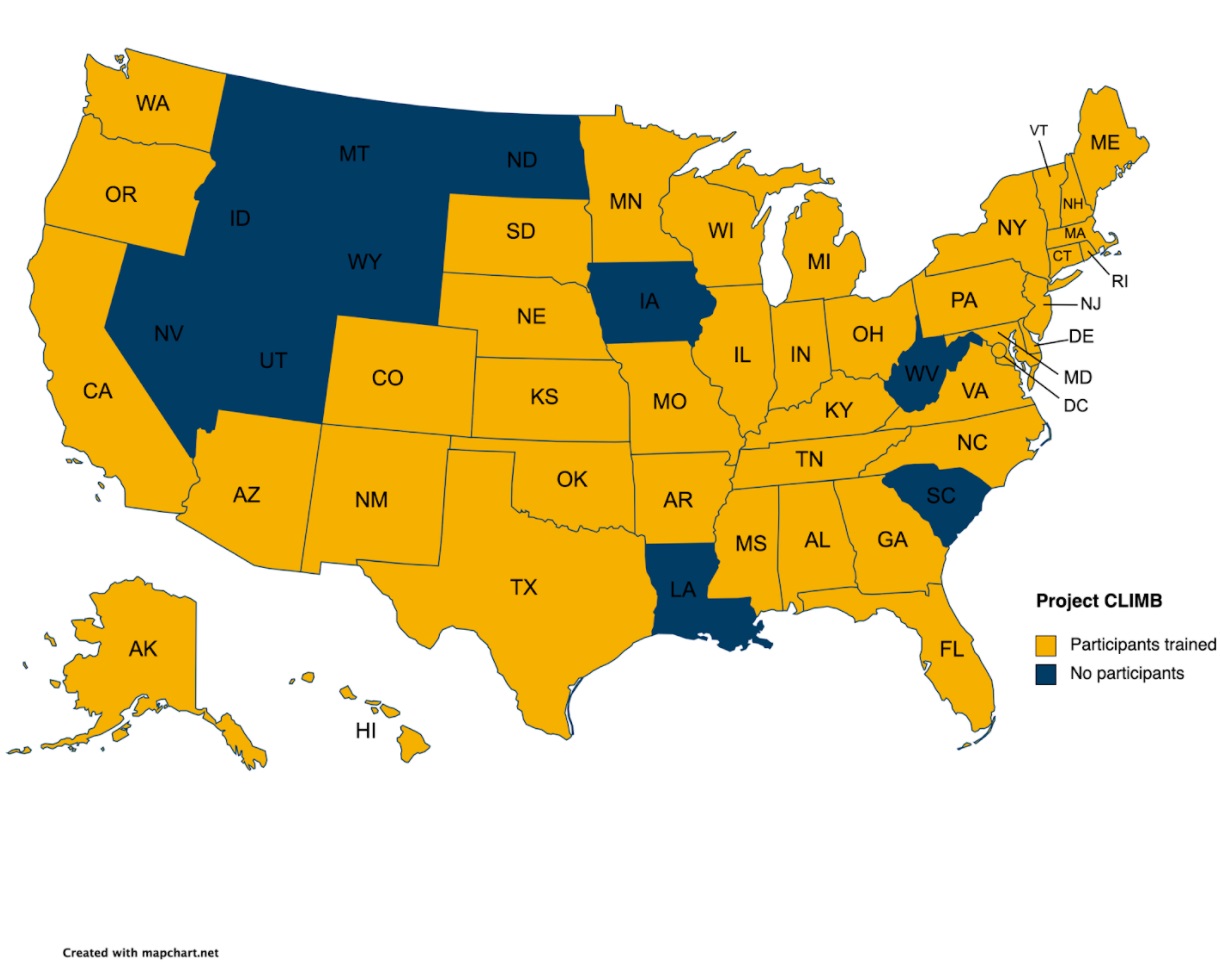Project CLIMB
Project CLIMB: Cultivating Legal Interpreters from Minority Backgrounds was a five year grant which served to increase the number of interpreters of color and/or from heritage signing backgrounds through the creation of career paths for specialization in legal interpreting for practitioners from these underrepresented communities.
As of December 31, 2021,
this grant project is no longer active or soliciting applications.
This website will remain available as a resource.
Grant's Impact
In addition to providing direct training opportunities to interpreters from underrepresented communities, the Project CLIMB website served as a rich resource for the larger legal interpreting community by compiling a wide variety of tools, materials, and webinars to support interpreters aspiring to or currently working in legal settings.
Shortage of Qualified Legal Interpreters
According to several needs assessments conducted by the National Consortium of Interpreter Education Centers (2007; 2010), there is a shortage of qualified interpreters to work in legal settings. Therefore, one of the reasons behind Project CLIMB was to promote the training and certification of interpreters in this area of specialization. As the grant's impact shows, positive strides have been made towards the shortage of qualified legal interpreters.
A UNC news article captures the positive impact Project CLIMB has had and will continue to have on interpreters of color and/or from heritage signing backgrounds which positively influences the Deaf community and their interactions with the legal system.
The Value of Diverse Legal Interpreters
In the video below, the Honorable Judge Helen Brown Bryant shares a judge’s perspective on diversity in the courtroom and working as an interpreter in this unique setting which provided context for Project CLIMB's overall vision and approach.
Interview
Spoken English with Captions
ASL Translation (no English Captions)
Want to see more?
Access the full version of the interview with the Honorable Judge Helen Brown Bryant in the Legal Toolkit.
The Importance of Competence in Legal Interpreting
Working in the legal setting requires advanced interpreting competence, including the ability to fluently execute consecutive and simultaneous interpreting of complex texts, work effectively in teams (particularly the ability to work collaboratively with Deaf Interpreters), and to adapt language use to a wide range of sign language users. Further, it requires an in depth understanding of law enforcement and the legal system.
There are unique parameters impacting the work of interpreters in legal settings that are the result of case law, legal, and evidentiary procedures. Typically, the knowledge and skills required of interpreters to work in legal settings are acquired after completion of a solid academic foundation in interpreting, coupled with multiple years of practice, followed by specialized training in legal interpreting and supervised field experience.
Certification of interpreters in this area of legal specialization is administered by the Registry of Interpreters for the Deaf, and requires that one possess generalist certification, and completion of a set number of hours of training and supervised work experience prior to application. The certification process involves a stringent written and performance exam.
Highly qualified interpreters are needed to work in legal settings - particularly in court and law enforcement proceedings where matters are high-risk and personal freedoms are often the focus.




 Of the 75 participants from the
Of the 75 participants from the 


